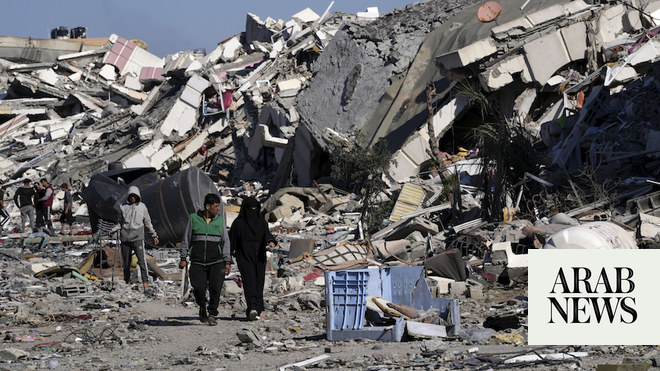
In an apparent breakthrough in the long-standing deadlock between Ankara and Yerevan, the two neighbors have pledged to appoint special envoys to pave the way for the normalization of Turkish-Armenian relations, after nearly three decades of enmity.
After months of several positive public statements by Turkish and Armenian officials, the announcement of the appointment of special envoys was made by Ankara and endorsed by Yerevan, with the latter stating that Armenia is ready to initiate a normalization process with Turkey “without preconditions.”
The Turkish side added that charter flights between Istanbul and Yerevan would resume soon.
Ankara has named Serdar Kilic, a former Turkish ambassador to Washington who has a close relationship with the Turkish presidency, as its special envoy to lead the discussions with the Armenians, while Yerevan has yet to announce a name.
Through the appointment of envoys, which is the most concrete step taken so far toward normalization, Ankara and Yerevan will be able to negotiate without third parties involved in the process.
When announcing the news of the special envoys, Ankara stressed that every step in the process will include consultations with Azerbaijan. This statement indicates that Ankara is cautious and determined not to relegate Baku to the sidelines as it did in 2009 when the Zurich Protocols between Turkey and Armenia were signed. That earlier attempt to establish diplomatic relations, and reopen the joint border between Turkey and Armenia, was derailed by Baku.
Therefore, the success of the new process between Turkey and Armenia will also depend on the separate track between Baku and Yerevan. If peace can be achieved between Azerbaijan and Armenia, progress could be made in Turkish-Armenian relations.
Last year’s six-week Nagorno-Karabakh War between Azeri and Armenian troops ended in favor of Baku, thanks to Turkey’s support, and provided a new impetus to restore ties between neighbors.
For a deeper understanding, I asked Armenian and Turkish civil society representatives about their perspectives on the appointment of special envoys.
According to Richard Giragosian, director of Yerevan-based Regional Studies Center, the announcement, which is seen as Ankara taking the first step in support of normalization with Armenia, is crucial for three reasons.
“Firstly, the process of normalization is part of a broader post-war effort to restore regional trade and transport in the South Caucasus region,” he said.
“Secondly, a return to diplomatic engagement between Turkey and Armenia offers a rare success in Turkish foreign policy and a positive development after months of political instability and economic crisis in Turkey. And thirdly, this is also a component of a more ambitious Turkish effort of rapprochement with Israel, the UAE and others.”
Mensur Akgun, director of the Global Political Trends Center in Istanbul, is optimistic but cautious about this new impetus.
“It is a positive step; however, the appointment of special representatives, not diplomatic representatives, shows us that the negotiation process is not over,” he said. “It is possible that Turkey will link the normalization to the genocide allegations and will try to maintain the balance in the twin protocols signed in 2009.
“On the other hand, both parties need to hurry up because their own public opinion and the regional conjuncture may follow a course against the normalization process.”
In addition to the Nagorno-Karabakh issue, Turkish-Armenian relations continue to be soured by the events that led to the deaths of Armenians living in Anatolia during the First World War. Armenians say the events amounted to “genocide,” while Turkey vehemently objects to the suggestion that there was a plan to systematically wipe out the Armenian population, and describes the events as a tragedy in which both sides suffered casualties.
For many years, therefore, the “G-word” has remained a major obstacle to the normalization of Turkish-Armenian relations, and all efforts by civil society organizations, intellectuals and officials to overcome it have failed.
One of the keys issues relating to the normalization of relations is the creation of a joint commission, made up of historians and lawyers from Turkey and Armenia, to discuss past humanitarian tragedies. Ankara has repeatedly proposed such an initiative as a requirement; however, it seems to be a prerequisite that is not easily acceptable to the Armenian side.
According to Akgun, the reason behind the Turkish desire for a normalization of the relations is to alleviate the pressure exerted by third parties on Ankara, and this can only be achieved by the establishment of such a commission. Therefore the current Turkish-Armenian rapprochement is being strongly supported by various international actors, in particular by Washington and Moscow.
But analysts maintain that the path to Turkey-Armenia normalization is not going to be a bed of roses.
One of the preconditions that Turkey included in the 2009 protocols for the establishment of diplomatic relations was Armenia’s recognition of Turkish territorial integrity. Article 11 of the Armenian Declaration of Independence of Aug. 23, 1990 refers to Eastern Anatolia, in Turkey, as Western Armenia and, as such, holds that the area is part of Armenia. This is considered by Turkey to be a policy that undermines good neighborly relations. Because of this article, the Armenian constitutional court did not allow the 2009 protocols to be ratified.
Needless to say, no one expects the issues between Turkey and Armenia to be resolved overnight. The normalization of relations will involve several aspects related to both domestic and regional constraints.
Although a challenging road lies ahead, sincerity and speedy efforts will be the keys to breaking the Turkish-Armenian deadlock. Both countries should be able to benefit from the new climate in the region that is more conducive to deescalation and diplomacy.
Sinem Cengiz is a Turkish political analyst who specializes in Turkey’s relations with the Middle East. Twitter: @SinemCngz
Disclaimer: Views expressed by writers in this section are their own and do not necessarily reflect Arab News" point-of-view











